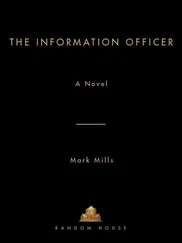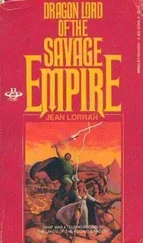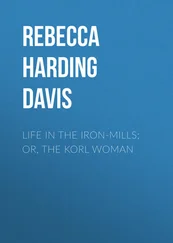Mark Mills - The Savage Garden
Здесь есть возможность читать онлайн «Mark Mills - The Savage Garden» — ознакомительный отрывок электронной книги совершенно бесплатно, а после прочтения отрывка купить полную версию. В некоторых случаях можно слушать аудио, скачать через торрент в формате fb2 и присутствует краткое содержание. Жанр: Старинная литература, на английском языке. Описание произведения, (предисловие) а так же отзывы посетителей доступны на портале библиотеки ЛибКат.
- Название:The Savage Garden
- Автор:
- Жанр:
- Год:неизвестен
- ISBN:нет данных
- Рейтинг книги:4 / 5. Голосов: 1
-
Избранное:Добавить в избранное
- Отзывы:
-
Ваша оценка:
- 80
- 1
- 2
- 3
- 4
- 5
The Savage Garden: краткое содержание, описание и аннотация
Предлагаем к чтению аннотацию, описание, краткое содержание или предисловие (зависит от того, что написал сам автор книги «The Savage Garden»). Если вы не нашли необходимую информацию о книге — напишите в комментариях, мы постараемся отыскать её.
The Savage Garden — читать онлайн ознакомительный отрывок
Ниже представлен текст книги, разбитый по страницам. Система сохранения места последней прочитанной страницы, позволяет с удобством читать онлайн бесплатно книгу «The Savage Garden», без необходимости каждый раз заново искать на чём Вы остановились. Поставьте закладку, и сможете в любой момент перейти на страницу, на которой закончили чтение.
Интервал:
Закладка:
"I disagree," said Adam. "I can't see her hiding herself."
"No?" Her tone was flat, skeptical.
"I know I've only met her once, but it's what struck me most— that she's not ashamed, not embarrassed. The way she wears her hair, the way she carries herself. She's not hiding."
"You think she doesn't look in the mirror every morning and wish it was different?"
"Maybe. I don't know. But she's more beautiful because of it, because of the way she is with it."
"You really believe that?"
"I do. Yes."
At first he took her look for one of weary sufferance, and he suddenly felt very young, he suddenly felt like a person in the presence of someone who has spent considerably more time on the planet. But there was something else in her eyes, something he couldn't quite place. He only realized what it was when a slow and slightly wicked smile spread across her face.
"You're playing with me."
"It's nice to see you defending her. And you're right—she is more beautiful because of it."
"How did it happen?"
"It was near Portofino, at night. Her mother was driving. She was also lucky. She only broke two ribs."
Signora Docci had not elaborated. In fact, she had terminated the conversation then and there on some doubtful pretext, banishing him back downstairs to his books.
Maybe that's what the problem was, mused Adam, strolling back past the grotto: the routine, the rigmarole, long periods of study broken by conversations with a bed-bound septuagenarian. Toss the pitiless heat into the pot, and it was little wonder he was losing his grip.
He climbed the steps sunk into the slope behind the grotto, resolving as he did so to break the pattern, to introduce some variety into his life, maybe eat out one night, cycle off somewhere for half a day, or even hitch a lift into Florence—anything to add some variety, jolt him out of his folly.
He stopped at the base of the amphitheater and stared up at Flora on her pedestal near the top. He would never be able to see her as he had that first time. Antonella's words had irrevocably colored his judgment. When he looked on the goddess twisting one way, then the other, he no longer saw the classic pose borrowed from Giambologna, he saw a woman contorted with some other emotion, he saw the provocative thrust of her right hip.
Why put her there, near the top but not at the top? In fact, why put her there at all, in a nine-tiered amphitheater? And why nine instead of seven tiers? Or five for that matter? What was so special about nine? The nine lives of a cat? A stitch in time . . . ? The nine planets of the solar system? No, they hadn't known about Pluto back then. Shakespeare, maybe—Macbeth—the witches repeating their spells nine times. Not possible. Shakespeare couldn't have been more than a boy when the garden was laid out. Close, though.
And the occult connection was interesting. How had the witches put it?
Thrice to thine, and thrice to mine,
And thrice again, to make up nine.
The trinity to the power of three—a powerful number—thrice sacred, like the Holiest of Holies, composed of the three trinities. And something else, some other dark association with the number nine. But what?
He pulled himself up short, the resolution fresh in his mind yet already ignored. He lit a cigarette, dropped the match in the trough at the foot of the amphitheater and made off up the pathway.
He was a few yards shy of the yew hedge barring his exit from the garden when the answer came to him.
The nine circles of Hell in Dante's Inferno.
It was several moments before he turned and hurried back down the path to the amphitheater.
It wasn't that the statue of Flora was placed on the second tier from the top—he couldn't remember just which category of human sin or depravity had been enshrined by Dante in the second circle of his Inferno —it was the inscription on the triumphal arch standing proud on the crest above that settled it:


It took him ten minutes to locate a copy of the book in the library, just time enough to recover his breath. He dropped into a leather chair and examined the tome: La Divina Commedia by Dante Alighieri, an Italian edition dating from the late nineteenth century.
His dictionary was back at the pensione, but with any luck he wouldn't need it, not immediately. Even his rudimentary Italian should be up to establishing which class of sinner inhabited the second circle of Dante's Hell, his Inferno.
He had never actually read The Divine Comedy right through. He had skimmed it, filleted a couple of commentaries, done just enough to satisfy an examiner that he was well acquainted with the text. He could have put forward a convincing argument for the timeless appeal of Dante's epic poem, the crowning glory of his life, twelve years in the writing, completed just before his death in 1321. He could also have listed a number of great writers and poets who openly and willingly acknowledged their debt to the work— William Blake, T. S. Eliot, Samuel Beckett and James Joyce. He could even have come up with some specifics, lines in The Waste Land that Eliot had lifted straight from The Divine Comedy.
Never having read The Waste Land —or any works by Beckett or Joyce, for that matter—he would have been hard-pressed to say what exactly these modern men of letters had seen to inspire them in a medieval poem about a lost soul's journey through Hell, Purgatory and Paradise.
It didn't matter, though. He could recall enough of The Divine Comedy to know that there was some kind of connection with the memorial garden.
Finding himself lost in a dark wood, Dante is approached by the spirit of the poet Virgil, who guides him down through the nine circles of Hell and on into Purgatory. The spirit of Beatrice— the love of Dante's life, long since dead—takes over as guide for the last leg, escorting Dante up through Paradise toward a final meeting with God.
Adam's interest lay in the opening of the story: Virgil leading Dante from the dark wood and through the Gates of Hell. Was it by chance that a dense wood of dark ilex trees bristled menacingly at the head of the memorial garden? Or that the triumphal arch stood so close by? Or that if you read the two curiously unsymmetrical decorative motifs flanking fiore as the letter n, then you had an anagram of inferno, of Hell? Was it possible that Federico Docci had moved, if not Heaven, then earth, and lots of it, to shape a steep slope for a simple amphitheater? Or had he done so in order to re-create the plunging layers of Hell so vividly detailed by Dante in the first part of his poem?
These were some of the questions that had carried Adam up the hill from the garden at a run, and that now had him furiously flipping through the old book.
He found what he was looking for in the fifth Canto of Inferno:
Cosi discesi del cerchio primaio giu nel secondo ...
So I descended from the first circle down to the second...
His eyes roamed over the text: a dark place . . . the cries and curses of the sinners as they're whirled around in a vicious wind that never stops . . . i peccator carnali.
He read on a little to confirm that he hadn't misunderstood. He hadn't.
If the ilex trees stood for the dark wood where Dante lost his way, and the triumphal arch represented the Gates of Hell, then Federico Docci had chosen to place the statue of his dead wife in the circle of Hell that housed the carnal sinners, the adulterers.
Читать дальшеИнтервал:
Закладка:
Похожие книги на «The Savage Garden»
Представляем Вашему вниманию похожие книги на «The Savage Garden» списком для выбора. Мы отобрали схожую по названию и смыслу литературу в надежде предоставить читателям больше вариантов отыскать новые, интересные, ещё непрочитанные произведения.
Обсуждение, отзывы о книге «The Savage Garden» и просто собственные мнения читателей. Оставьте ваши комментарии, напишите, что Вы думаете о произведении, его смысле или главных героях. Укажите что конкретно понравилось, а что нет, и почему Вы так считаете.











